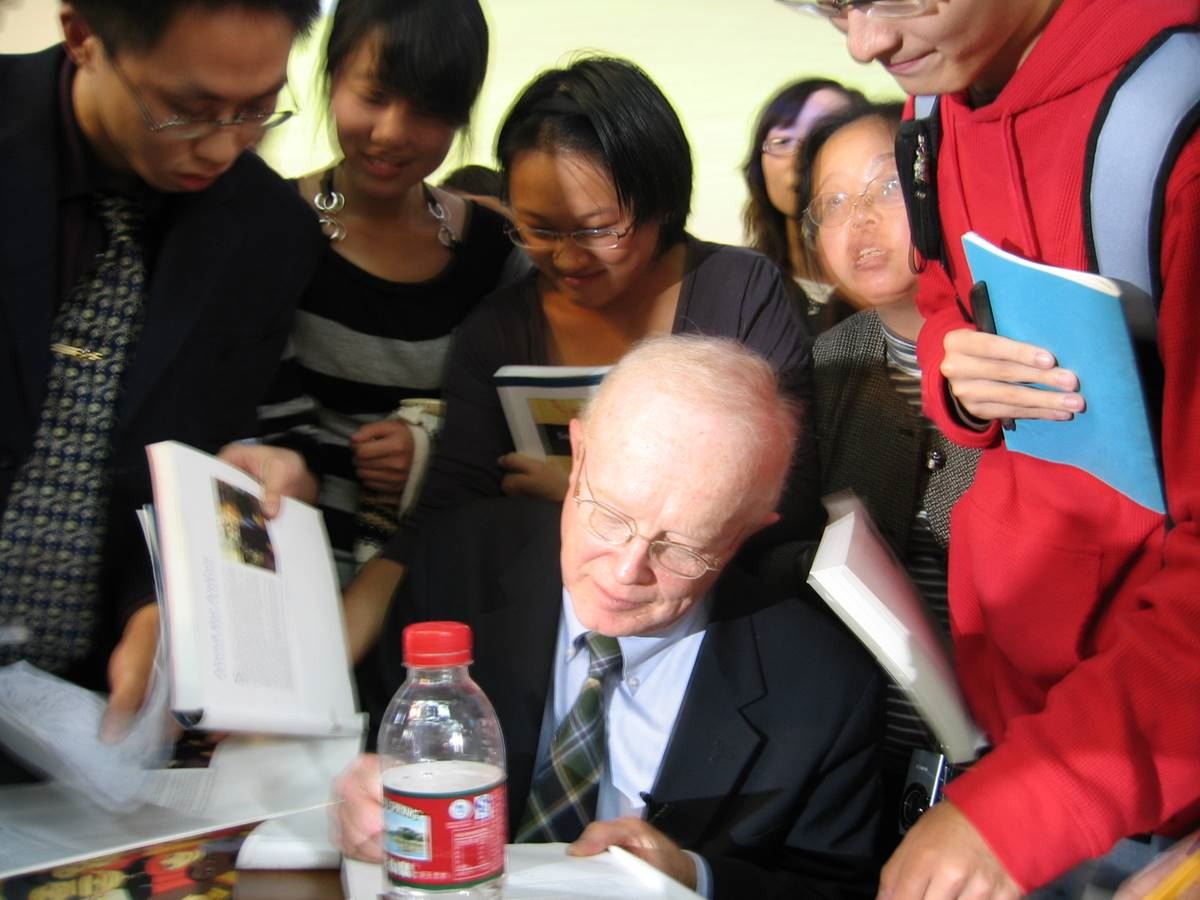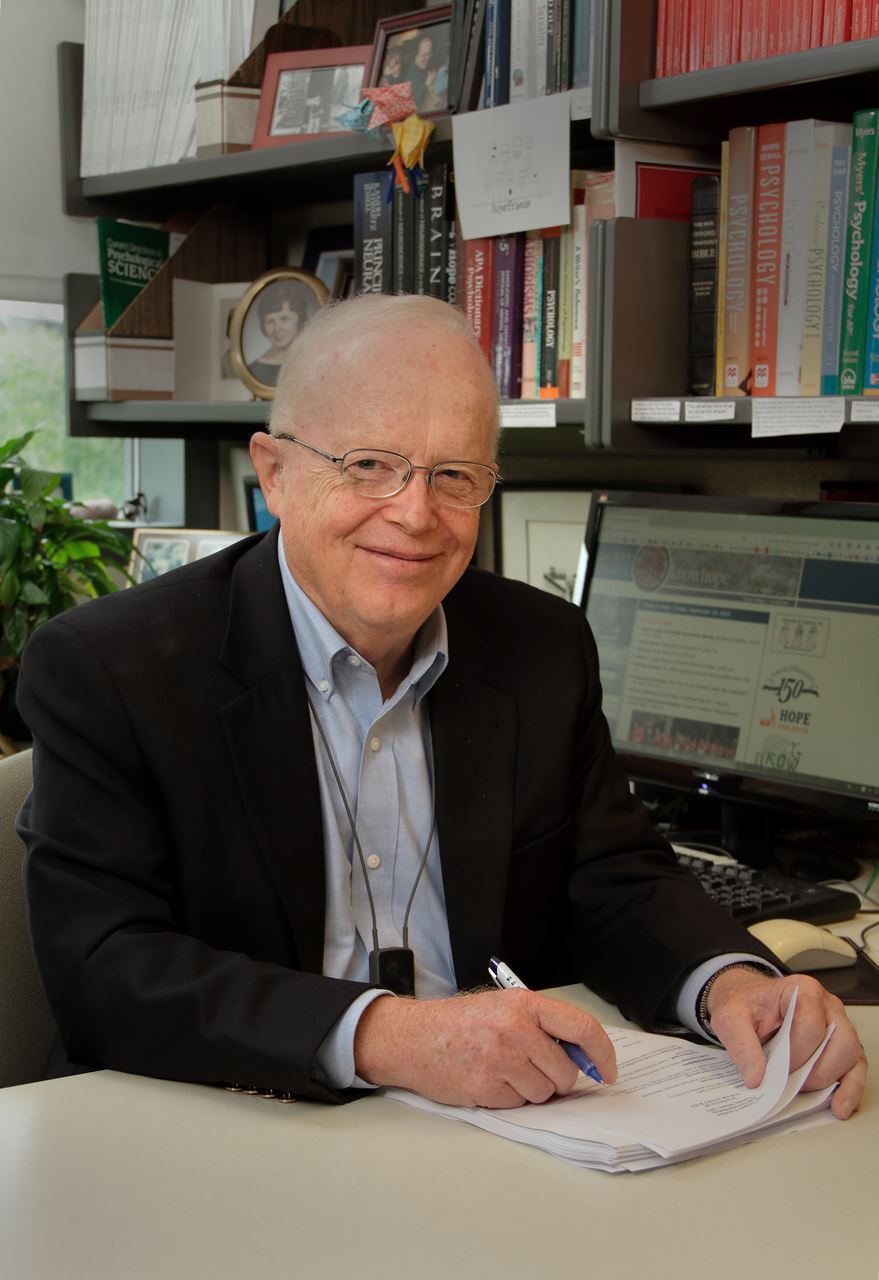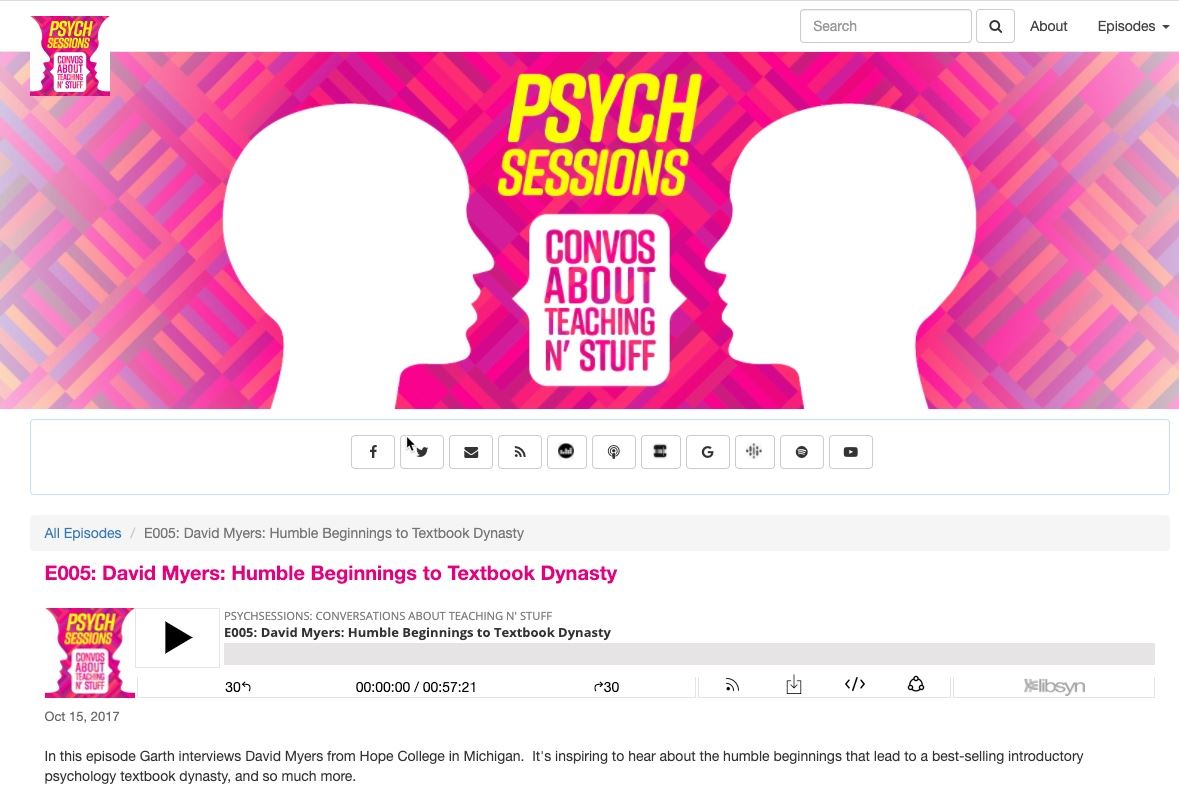What book or article has shaped your work as a psychology teacher?
As a to-be-college senior (and premed chem major who got as far as taking the MCAT and half completing my med school applications) I decided instead to become a professor. Needing something to profess that wasn’t chemistry, I recalled enjoying my long-ago intro to psych class and, on not much more than a whim, decided to pursue psychology. In that senior year I read books by Gordon Allport. As a deeply humane, literate, faith-motivated scholar of personality and prejudice, he defined the psychology that attracted me.
 Briefly tell us about your favorite lecture topic or course to teach.
Briefly tell us about your favorite lecture topic or course to teach.
As a social psychologist, I guessed that writing and teaching about sensation and perception would be a struggle. But then I was awe-struck by the intricacies of the matter-to-mind process by which we convert physical energy into consciousness. As a person with hearing loss and a hearing advocate, I especially love talking about the psychology of hearing and hearing loss.
Briefly describe a favorite assignment or in-class activity.
In social psychology classes, a favorite day was demonstrating “group polarization” (my research focus)—with a class demonstration that never failed. In introductory psychology, my favorite in-class activity was a day devoted to analyzing ESP claims and playing stage magician, by demonstrating pseudo-psychic ESP tricks.
[Editor's Note: David was gracious enough to send along these demos, which you can download below.]
What teaching and learning techniques work best for you?
A mix of lecture on favorite topics, illustrated with video clips and active learning (demonstrations and discussion).
 What’s your workspace like?
What’s your workspace like?
I’m surrounded by a U-shaped desk, which typically is clean—but on which I can lay out materials while writing.
Three words that best describe your teaching style.
Enthusiastic. Organized. Focused.
What is your teaching philosophy in 8 words or fewer?
Teach with passion. Activate learners. Life relevant focus.
Tell us about a teaching disaster (or embarrassment) you’ve had and how you dealt with the situation.
During one of those group polarization demonstrations, a small group was unable to open the door and extract themselves from their small group lab room. I failed to notice that they had not returned to the class, and came within a whisker of leaving them stranded (overnight?). Even so, to my great embarrassment, they were not released before all other students were long gone.
What is something your students would be surprised to learn about you?
- That, as a child I stuttered, for which I received speech therapy from Seattle Public Schools.
- That my great grandfather—whose name is my middle name (Guy)—invented the ice cream soda. See here for my deer-in-the-headlights photo that accompanied an article in papers nationwide.
- That I’m a lifelong basketball nut—having
-
- as a child read every basketball fiction book in the Seattle Public Library system and attended University of Washington practices as well as games,
- played pickup basketball throughout my life, and
- scheduled my college’s men’s and women’s games into my calendar nearly a year in advance.
- That without hearing aids I am deaf (in bed I cannot hear my wife from the adjacent pillow, unless I put an ear to her mouth) . . . but that this has enabled an avocational purpose. For the past four years I represented Americans with hearing loss on the advisory council of NIH’s National Institute on Deafness and Other Communication Disorders. And, in collaboration with others with hearing loss, I have created www.hearingloop.org, and written almost 20,000 e-mails and three dozen articles that advocate a transformation in American “assistive listening”—with a technology that enables hearing aids also to serve as wireless, customized, in-the-ear speakers for sound from PA systems, TVs, etc.
What are you currently reading for pleasure?
I daily read the New York Times and admit to being a political junkie.
What tech tool could you not live without?
The hearing loops that broadcast directly to my ears the sound from my TV and the spoken word in most of my campus auditoriums and community worship places.
What is your hallway chatter like? What do you talk to colleagues about most (whether or not it is related to teaching/school)?
I’m blessed to be part of an amazing group of psychology faculty that, without exception, love, support, and cheer on one another. We can discuss anything from campus politics, to family life, to new research, to . . . basketball.
Teaching Demonstrations
David Myers - Group polarization.pdf
David Myers - Pseudopsychic demonstrations.pdf
PSYCHSESSIONS UPDATE: Listen to Dave Myers talk with Garth Neufeld about the beginnings of his intro. psych textbook work and how he uses that work to support high school and college psychology teachers: https://psychsessionspodcast.libsyn.com/e005-interview-with-david-myers
BONUS PSYCHSESSIONS UPDATE: Dave came back for another interview with Garth. This time they talked about current topics like hate speech and how psychological research can inform critical thinking and communication about difficult topics. https://psychsessionspodcast.libsyn.com/e092-david-myers-part-2-social-respectful-discerning-generous-inclusive

